Key Faculty & Specific Research Interests
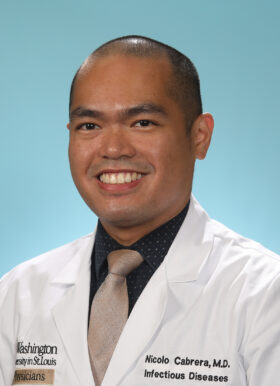
Nicolo Cabrera, MD
Assistant Professor of Medicine
- Phone: 314-454-8254
- Email: ncabrera@wustl.edu
Dr. Cabrera specializes in clinical infectious disease, with a special focus on infectious disease in the setting of transplant, cancer and other forms of immune compromise.
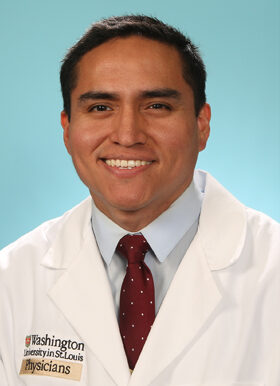
Miguel A Chavez, MD, MSc
Instructor in Medicine
Miguel A. Chavez, MD MSc is currently working with the BJH-Antimicrobial Stewardship program and the division of Hospital Medicine in the department of Internal Medicine as an Instructor.
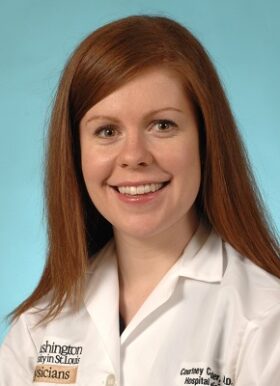
Courtney Chrisler, MD
Assistant Professor of Medicine
- Phone: 314-454-8354
- Fax: 314-454-5392
- Email: cchrisler@wustl.edu
Dr. Chrisler specializes in general infectious diseases with a focus on management of acutely hospitalized patients, clinical education, and patient safety and quality improvement.
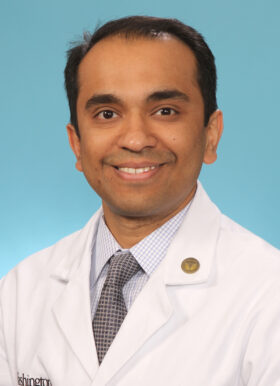
Ige A. George, MD, MS
Associate Professor of Medicine
- Phone: 314-454-8354
- Fax: 314-454-5392
- Email: igeorge@wustl.edu
Ige George, MD is the director of the infectious diseases fellowship program. He specializes in clinical research focused on the epidemiology and treatment of infections in the immune compromised hosts and solid organ transplant recipients. He also serves as the TB physician for the St. Louis City TB and Refugee Clinic.
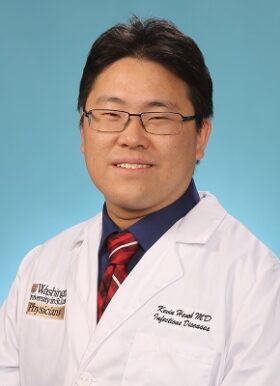
Kevin Hsueh, MD
Associate Professor of Medicine
- Phone: 314-454-8224
- Fax: 314-454-5392
- Email: khsueh@wustl.edu
Dr. Hsueh specializes in Antimicrobial Stewardship and Infection Prevention, with special focus on practical design and implementation of healthcare quality and safety improvement interventions.
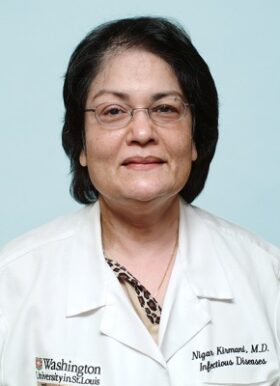
Nigar Kirmani, MD
Professor of Medicine
- Phone: 314-454-8214
- Fax: 314-454-5392
- Email: nkirmani@wustl.edu
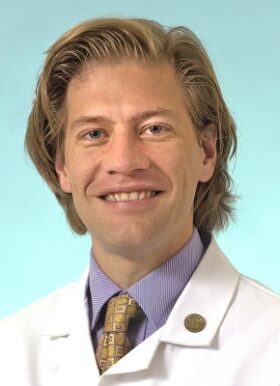
Steven J. Lawrence, MD, MSc
Professor of Medicine
- Phone: 314-454-8225
- Fax: 314-454-5392
- Email: slawrenc@wustl.edu
Dr. Lawrence’s research interests focus on the human immune response to viral infections and vaccines, the epidemiology of infections in solid organ and stem cell transplant recipients, and public health preparedness for pandemic COVID-19, Delta and other variants, pandemic influenza and bioterrorism events.
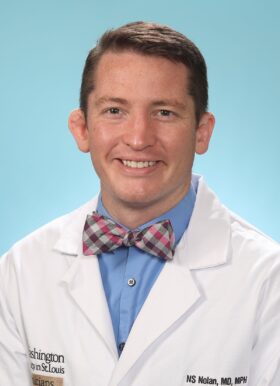
Nathanial S. Nolan, MD, MPH, MPHE
Instructor in Medicine
- Email: nolann@wustl.edu
Dr. Nolan specializes in clinical medicine and education, with a special focus on marginalized populations, including patients who use drugs and patients who are unhoused.